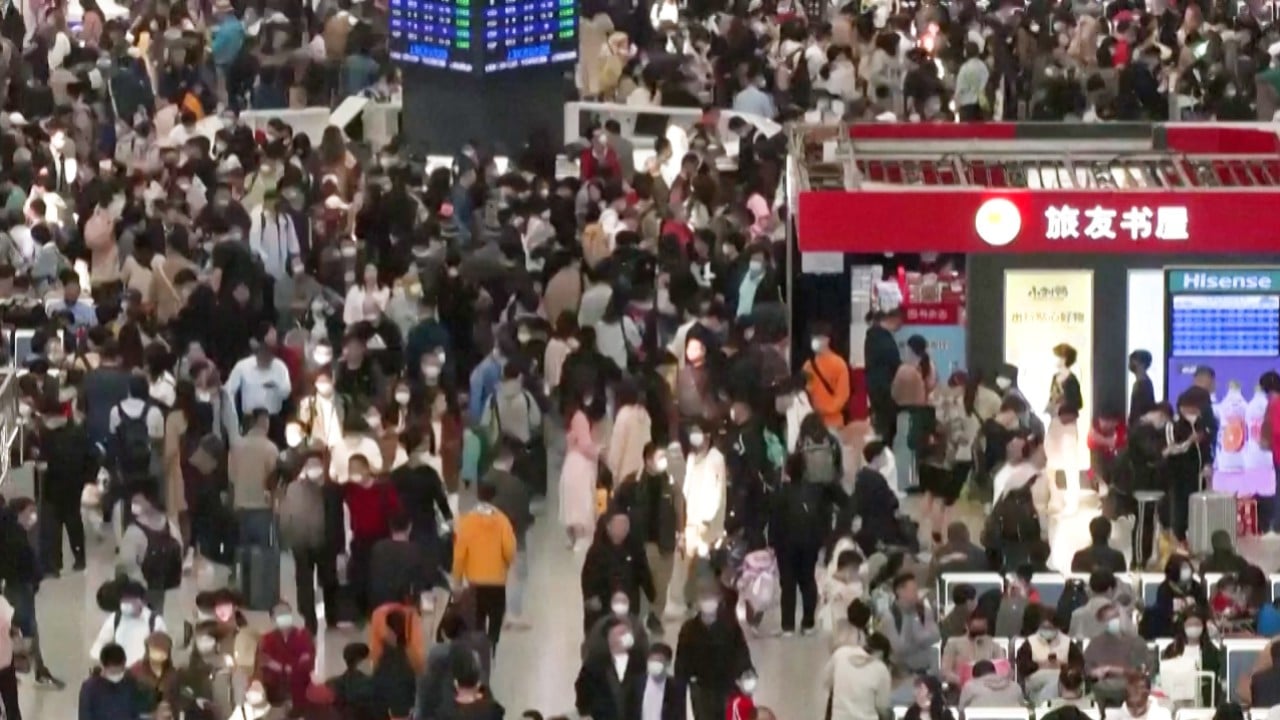
Crisis? What crisis? China’s domestic tourism is booming
- While Southeast Asian tourism is feeling the lack of Chinese travellers, China’s domestic tourist market is a glowing picture of Chinese consumption
- Fewer Chinese travellers are venturing overseas, not just because of the economic outlook, but also because of the growing appeal of domestic tourism
One of the biggest sources of concern in the global economy is the weakness of domestic demand in China. The main worry is much softer-than-expected household consumption, the part of the economy that was supposed to roar back with the end of three years of self-imposed isolation.
Southeast Asia’s tourism industry – which relied heavily on Chinese travellers before the pandemic erupted – has already suffered. In Thailand, Chinese tourist arrivals have totalled just 2.3 million so far this year, significantly below the government’s initial full-year target of 5-7 million and a far cry from the 11 million it welcomed in 2019.
According to global travel data provider OAG, scheduled seat capacity on international flights to and from mainland China last month was 46 per cent lower than its level in September 2019. International travel accounted for just 6.1 per cent of Chinese airline capacity, down from 12.3 per cent four years ago.
China’s domestic tourist market is a different story altogether, one that paints a decidedly positive picture of post-Covid-19 Chinese consumption. Seat capacity on domestic flights last month was almost 15 per cent higher than in September 2019, data from OAG shows.
While Chinese consumers have put off big purchases, especially property, travel-related spending has rebounded strongly. Deprived of the opportunity to go abroad for three years, travellers have sought out new leisure experiences at home such as beach resorts, skiing trips and staycations.
A report by McKinsey published in May noted that Chinese travellers “want to do more than shopping and sightseeing and have expressed willingness to spend on offerings geared towards entertainment and experience” that are “familiar and accessible”. This has led to a more mature and sophisticated domestic tourist market.
“Hotels in top domestic tourist destinations such as Sanya enjoyed a thriving business even in 2020,” said Tao Zhou, head of the hotels and hospitality group for Greater China at JLL.
Even in Shanghai, average occupancy and revenue per available room in August had reached or surpassed August 2019 levels.
Hong Kong should aim high to revive its tourism
Few global firms talk more optimistically about China than hotel groups. While international brands’ scale is limited – domestic brands account for the overwhelming bulk of the hotel room count – expansion in China is an important part of their growth strategy, mainly because the market is underpenetrated and presents an opportunity to grow their networks and improve their margins in the long term.
Accor, the French hotel group that is one of the main foreign brands in China, is on course to sign a record 125 new hotel partnership projects this year as it continues to expand through master franchise agreements and organic growth. “We’re very fortunate that travel is not something consumers cut back on,” said Gary Rosen, chief executive for Greater China at Accor.
To be sure, Chinese hotels face similar challenges to those confronting their peers in other countries. Acute talent shortages, the sharp rise in energy and labour costs and the soaring cost of travel are all drags on growth. Yet, it is easier to take a long-term view when the industry is strongly outperforming other sectors of the economy.
Rosen said that China remains the “best consumer story in the world”, adding: “You can’t have one foot in and one foot out.” At a time when many foreign investors have lost confidence in China’s economy, these are remarkably upbeat views. But then few sectors have bounced back as strongly as domestic tourism.
Nicholas Spiro is a partner at Lauressa Advisory


